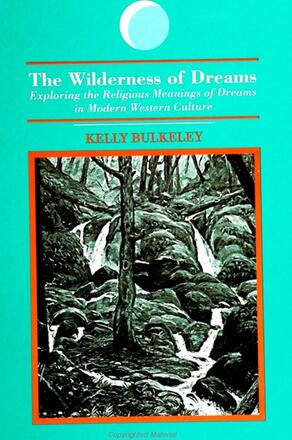
The Wilderness of Dreams
Exploring the Religious Meanings of Dreams in Modern Western Culture
Alternative formats available from:
Description
This interdisciplinary study of the religious dimensions of dreams shows how modern dream research supports and enriches our understanding of religiously meaningful dreams.
The Wilderness of Dreams does four things that no other work on dreams has done. First, it surveys the whole range of modern dream research—not just the work of depth psychologists and neuroscientists, but also the findings of anthropologists, content analysts, cognitive psychologists, creative artists, and lucid dreaming researchers. Second, it draws upon new advances in hermeneutic philosophy in order to clarify basic questions about how to interpret dreams. Third, it develops a careful, well-grounded notion of religious meaning—the "root metaphor" concept—to show that seeking religious meanings in dreams is not mere superstition. And fourth, the book reflects on the question of why modern Westerners are so interested in affirming, or debunking, the idea that dreams have religious meanings.
Kelly Bulkeley is Visiting Scholar at the Graduate Theological Union at the University of California, Berkeley. He is a member of the Board of Directors, and Chair of the Education Committee, of the Association for the Study of Dreams.
Reviews
"There are so many things I like about this book: the clarity of the prose, the breadth and depth of the ideas and the intellectual analysis, the elegant synthesis of seemingly disparate schools of thought and points of view, the strength and practical usefulness of the central thesis. It provides both a framework and a vocabulary for productive dialogue in the most important issues in the study of dreams, across disciplines that have traditionally been separated by misunderstanding.
"The book is not only filled with dramatic insights and healing metaphors: the flavor and excitement of deepening understanding of dreams is communicated with a blend of clarity and enthusiasm that immediately appeals to a wide and diverse audience. "— Jeremy Taylor, author of Dream Work, and Where People Fly and Water Runs Uphill: Using Dreams to Tap the Wisdom of the Unconscious
"The author eloquently expresses one of the oldest approaches to understanding dreams, i. e., that they are intimately related with religious meaning. The author's use of the 'root' metaphor is an invaluable contribution toward explaining how dreams may be meaningful. I think this book is destined to engender a great deal of discussion about dreaming and perhaps even a new way of understanding this elusive phenomenon. "— Tore A. Nielsen, Hospital Sacre-Coeur de Montreal